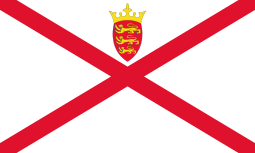INTELLECTUAL PROPERTY RIGHTS IN JERSEY

Opposition Term |
N/A |
Registration Term |
Depends on the corresponding UK Registration |
First Renewal Term |
Depends on the corresponding UK Registration |
Subsequent Renewal Term |
Depends on the corresponding UK Registration |
The present law governing the registration of trademarks in Jersey is the Trade Marks (Jersey) Law 2000, which brings Jersey in line with the provisions of the Trade Mark Act 1994 in the UK.
For obtaining trademark protection in Jersey, it is first necessary to have the trademark registered in the United Kingdom.
If the trademark has been registered in the United Kingdom, then its extension to Jersey must be requested with the Intellectual Property Registry of the Bailiwick of Jersey.
An application must be filed within four (04) months of the UK application date to be afforded the UK filing date as a priority date.
Registered trademarks in Jersey have their validity dependent on the registration in the United Kingdom.
Once a trademark has been renewed in the United Kingdom, then it must also be requested in Jersey.
Where a trademark has been registered and its registration in the United Kingdom has been renewed, the registered proprietor may apply to the registrar for registration of the renewal, and the registrar shall, on production of sufficient evidence of the renewal in the United Kingdom, register the renewal.
Where the registration of a trademark has not been renewed and not less than twelve (12) months have elapsed since the expiry of the period for which it was registered, the registrar shall remove that trademark from the register of trademarks.
Jersey ratified the Paris Convention for the Protection of Industrial Property on 13th August 2020.
Patents in Jersey are governed by the Patents (Jersey) Law 1957, which confers on the patentee the same rights as enjoyed in the UK.
Any person being the grantee of a patent for the time being in force in the United Kingdom, or any person whose right to the patent derives from such grantee by assignment, transmission or other operation of law, may apply to the Judicial Greffier for the registration of the patent.
The types of patent applications that can be filed include Non-Convention Application and Convention Application.
Within two (02) months of the date of such advertisement, notice of opposition to the registration of the patent may be given to the Judicial Greffier.
The duration of patent protection depends upon the duration of the UK registration.
Design registration is currently governed by the Registered Designs (Jersey) Law 1957.
Any person for the time being entered in the United Kingdom register of designs, as the proprietor of a design, may apply to the Judicial Greffier for the registration of the design.
Opposition against an industrial design application can't be raised in Jersey.
The total duration of industrial design registration in Jersey is dependent on the parent United Kingdom registration.
Jersey is a signatory to the Berne Convention for the Protection of Literary and Artistic Works.
Copyright laws are defined by the Intellectual Property (Unregistered Rights) (Jersey) Law 2011.
In Jersey, copyright comes into existence as soon as the work is created. No formality is laid down for registration of a copyright.
Copyright in literary, dramatic, musical, or artistic works expires at the end of seventy (70) years from the end of the calendar year in which the author dies.
If the work is unknown authorship, copyright expires at the end of seventy (70) years from the end of the calendar year in which the work was made; or if during that period the work is made available to the public, the period expires at the end of seventy (70) years from the end of the calendar year in which it is first so made available.
With a work of joint authorship, copyright expires at the end of seventy (70) years from the end of the calendar year in which the last surviving known author dies.
If the work is computer-generated, copyright expires at the end of fifty (50) years from the end of the calendar year in which the work was made.
For sound recordings, copyright expires at the end of the period of fifty (50) years from the end of the calendar year in which the recording is made, published, or communicated to the public, whichever is later.
For films, copyright expires at the end of the period of seventy (70) years from the end of the calendar year in which the death occurs among the last to die of the principal director, the author of the screenplay, the author of the dialogue, and the composer of music, specifically created for and used in the film.

